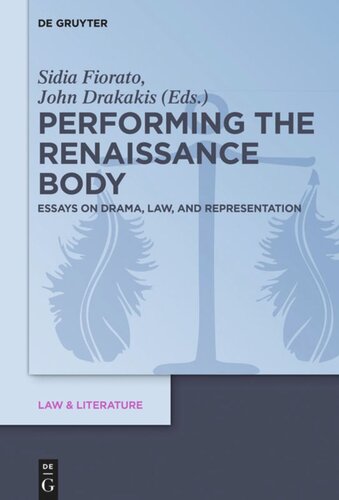

Most ebook files are in PDF format, so you can easily read them using various software such as Foxit Reader or directly on the Google Chrome browser.
Some ebook files are released by publishers in other formats such as .awz, .mobi, .epub, .fb2, etc. You may need to install specific software to read these formats on mobile/PC, such as Calibre.
Please read the tutorial at this link: https://ebookbell.com/faq
We offer FREE conversion to the popular formats you request; however, this may take some time. Therefore, right after payment, please email us, and we will try to provide the service as quickly as possible.
For some exceptional file formats or broken links (if any), please refrain from opening any disputes. Instead, email us first, and we will try to assist within a maximum of 6 hours.
EbookBell Team

0.0
0 reviewsIn the Renaissance period the body emerges as the repository of social and cultural forces and a privileged metaphor for political practices and legal codification. Due to its ambivalent expressive force, it represents the seat and the means for the performance of normative identity and at the same time of alterity. The essays of the collection address the manifold articulations of this topic, demonstrating how the inscription of the body within the discursive spheres of gender identity, sexuality, law, and politics align its materiality with discourses whose effects are themselves material. The aesthetic and performative dimension of law inform the debates on the juridical constitution of authority, as well as its reflection on the formation and the moulding of individual subjectivity. Moreover, the inherently theatrical elements of the law find an analogy in the popular theatre, where juridical practices are represented, challenged, occasionally subverted or created. The works analyzed in the volume, in their ample spectre of topics and contexts aim at demonstrating how in the Renaissance period the body was the privileged focus of the social, legal and cultural imagination.